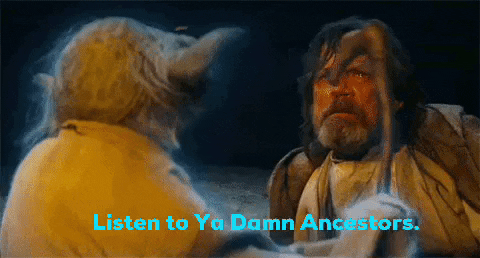Thursday, 29 April 2021
There is No Such Thing as Absolute Love or Absolute Hate, as Distinguished from Each Other.
No Plan.
Vaccine Equity
This is a sparring program, similar to the programmed reality of The Matrix. It has the same basic rules, rules like gravity. What you must learn is that these rules are no different that the rules of a computer system — Some of them can be •bent•. Others, can be broken.
I’ve seen An Agent punch through a concrete wall. Men have emptied entire clips at them and hit nothing but air.
Yet their strength, and their speed are still based in A World that is built on RULES, and because of that, they will never be as strong or as fast as YOU can be.
Mr. Eastwood
“I have engaged a place here for three months:

3.
"Don't. Be. A Turd.
If you are Strong,
Be A Protector.
If you are Smart,
Be A Humble Influencer.
Strength and Intelligence
can be weapons,
so do NOT wield them
against The Weak.
That makes you A Bully.
Be BIGGER than that."
Killing The Cow
Did you hear me?
This is an evacuation.
You understand?
You have to come with me.
Why?
Because they told me,
so now I'm telling you.
Everyone in this village,
everyone.
It's not safe here.
There's radiation in the air.
What's wrong with you?
Do you know how old I am?
I don't know.
Old.
I'm 82.
I've lived here my whole life.
Right here, that house, this place.
What do I care about safe?
I have a job.
Don't cause trouble.
Trouble?
You're not the first soldier to stand here with a gun.
When I was 12,
The Revolution came.
Czar's men.
Then Bolsheviks.
Boys like you marching in lines.
They told us to leave.
No.
Then there was Stalin
and his famine, the Holodomor.
My parents died.
Two of my sisters died.
They told the rest of us to leave.
No.
Then The Great War.
German boys.
Russian boys.
More soldiers,
more famine,
more bodies.
My brothers
never came home.
But I stayed,
and I'm still here.
After all that I have seen so I should leave now, because of something I cannot see at all? No.
Just one moment!
It's time to go.
Please stand up now.
This is your last warning.
It's time to go.
Come on.
I only have Two Rules :
One.
Don't point this gun at me.
That's easy, right?
You can point it at
this piece of shit.
I don't give a fuck.
Never me.
Two.
If you hit an animal and it doesn't die,
keep shooting until it does.
Don't let them suffer,
or I'll kill you.
Understand? I mean it.
I've killed a lot of people.
Good.
Then we're ready.
Once we start,
they'll run inside
where they feel safe.
So we go door-to-door.
Okay? Good.
Hey! Do your job.
Door-to-door.
Go.
Go.
Go away.
Go! Don't let them suffer.
Sorry.
Sorry.
You're dragging that to the truck.
You gonna eat? Drink.
Again.
Look This happens to everyone their first time.
Normally when you kill a man.
But for you, a dog.
So what? There's no shame in it.
You remember your first time, Garo? My first time Afghanistan.
We were moving through a house, and suddenly a man was there and I shot him in the stomach.
Yeah, that's a real war story.
They're never any good stories like in the movies.
They're shit.
A man was there boom, stomach.
I was so scared, I didn't pull the trigger again for the rest of the day.
I thought, "Well, that's it, Bacho.
You put a bullet in someone.
You're not you anymore.
You'll never be you again."
But then you wake up the next morning, and you're still you.
And you realize that was you all along.
You just didn't know.
The happiness of all mankind.
What?
"Our goal is the happiness of all mankind."
Yeah.
I'm happy.
I'm happy every day.
All right.
Back to work.
Come on.
Comrade soldiers,
The Soviet People have had enough of this accident.
They want us to clean this up,
and we have entrusted you with this serious task.
Because of the nature of the working area,
you will each have no more
than 90 seconds to solve this problem.
Listen carefully
to each of my instructions,
and do exactly
as you have been told.
This is for your own safety
and the safety of your comrades.
You will enter Reactor Building Three, climb the stairs but do not immediately proceed to the roof.
When you get to the top,
wait inside,
behind the entrance to the roof
and catch your breath.
You will need it
for what comes next.
This is the working area.
We must clear the graphite.
Some of it is in blocks,
weighing approximately 40 to 50 kilograms.
They all must be thrown over the edge, here.
Watch your comrades moving fast from this opening,
then turning to the left,
and entering the workspace here.
Take care not to stumble.
There's a hole in the roof.
Take care not to fall.
You will need to move quickly,
and you will need to move carefully.
Do you understand your mission
as I have described it?
Yes, Comrade General.
These are the most important 90 seconds of your lives.
Commit your task to memory,
then do your job.
It's time to go.
After 90 seconds,
I will ring a bell.
When you hear it, return immediately, drop your shovels in the bin, and proceed down the hallway for decontamination.
Above all, while on the roof, throw your debris over the rail.
Do not look over the rail.
Is that clear?
Very well.
On my mark.
Ready.
Go.
Whoa! Comrade soldier.
You're done.
Time to go.